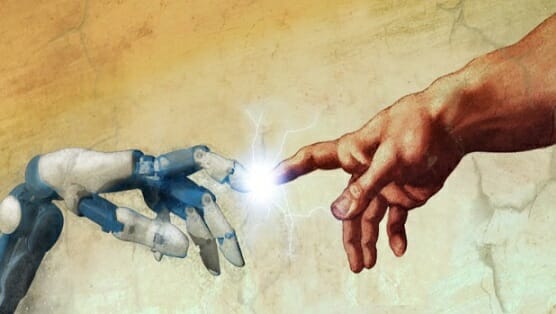The Talos Principle: I Think, Therefore I Solve

It’s a miracle when a videogame dares to address the voice of God. The largely secular, apathetic and bitter videogame industry too often ignores what providence can mean to human experience and thought. Going well beyond the spiritual tokenism of Always Sometimes Monsters, The Talos Principle stands among the brave, contemplative few (Earthbound, The Shivah, Proteus) that seriously consider a greater power and the realizations that consideration can bring.
The Talos Principle’s examination of faith, doubt, rationalization and purpose is very welcome a year after the intellectually insulting The Stanley Parable HD. Not falling for the latter’s button-pressing nihilism, The Talos Principle uses voice-overs to set the stage for ages-old philosophical conflict: the pursuit of knowledge through skepticism vs. the satisfaction of order. To frame this conflict, The Talos Principle updates the Garden of Eden story from Genesis with Isaac Asimov’s speculation on the blurring of humans and machines. Some critics have called The Talos Principle a first-person puzzler, but the label is nothing more than part of an urge to compare this game to critical darling Portal and continue the contact high caused by Grand Theft Auto V’s “next-gen” conversion to the first person. The Talos Principle gains more punch with its third-person option, which better forces the player to observe the mechanical side of humanity and its relationship to the accounts of our creation.
In a way, The Talos Principle’s emphasis on these subjects is not surprising. Earlier this year, one of the game’s writers, Jonas Kyratzes, released The Matter of the Great Red Dragon, a choose-your-own-adventure that questioned whether traditional morality can survive over centuries. Similarly, The Talos Principle puts tradition to the test with interrogation from a skeptic, a sly parallel to the serpent (Satan) in the Garden of Eden story. Secularists need not huff or smirk at Satan playing the voice of reason, though: Kyratzes and co-writer Tom Jubert use Adam and Eve’s inquisitiveness, not their sin, to illustrate the universal struggle of humankind.
 Keep scrolling for more great stories.
Keep scrolling for more great stories.

